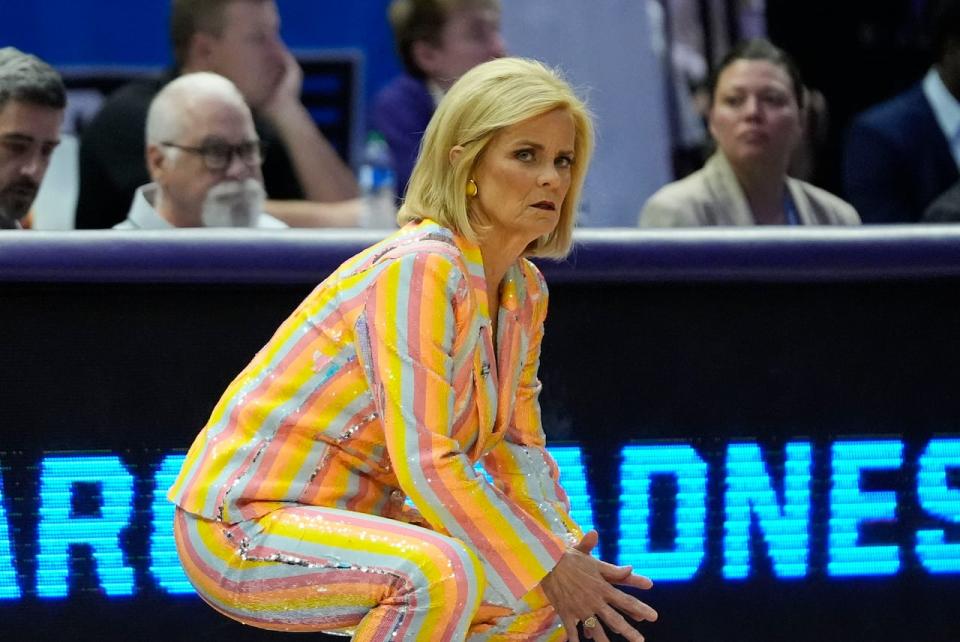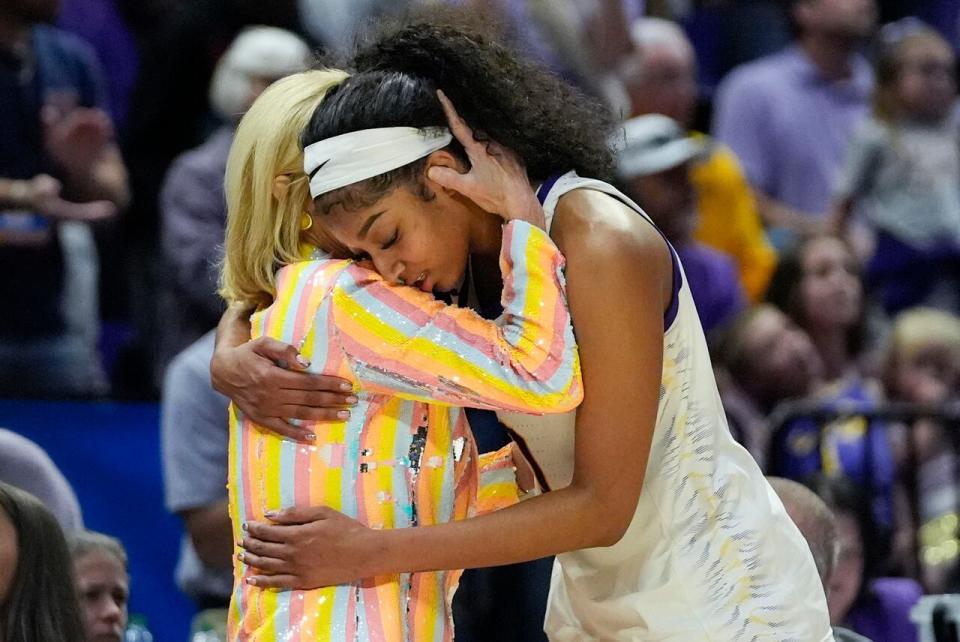LSU coach Mulkey's attack on Washington Post reporter hurts women's sports

This month of March has been electrifying with brilliant basketball on both sides of the border.
On some sites, more tickets for the Final Four of the women's NCAA tournament have been sold than the men's tournament. As a fan of women's college basketball, it's been thrilling to watch six hours a day of games that seem to be tight and so fiercely competitive.
As we see women's sports grow in Canada and around the world, an important part of the sports landscape is journalism. If we want accountability, transparency and proper development in sports cultures, journalism is a staple of that industry.
Recently, Kim Mulkey, Louisiana State University's polarizing and colourful-outfit-wearing coach (think Don Cherry but blonde), verbally attacked a journalist from the Washington Post (without saying his name, Kent Babb) because he is working on a profile of her that perceives to cast her in a negative light.
Mulkey is not a person who shies away from the spotlight, as long as she's happy with the rays. In this case, she said a "sleazy reporter" was working on a "hit piece" and she had already hired lawyers to prepare to sue for defamation. (As of March 27, the Washington Post hadn't published Babb's story.)
Mulkey doesn't seem to understand that journalism is not public relations and as much as people are interested in advocating and reporting on the women's game (essential to the growth of women's sports), not every story will be a glowing report. In labelling Babb as "sleazy," Mulkey is trying to convince people that he is somehow biased against her.
I am in a position where I personally and professionally advocate for the growth of women's sports, but my job isn't to be a communications officer working for a team or league. If there is something problematic that needs to be examined, the role of a journalist is to make sure that's done. The public deserves information — not sugar coating or billowy puff pieces.
If a women's sports league is hit with a crisis of racism for example, then I and my colleagues will cover it. That's what we are obligated to do.
Mulkey said she didn't have time to answer questions in the days before LSU's first game of the NCAA tournament. Asking a person and offering them the right of response is standard practice in journalism, and so is giving people a time limit. Babb had been requesting an interview with her for two years and been denied each time.
Hijacking tournament
A story is not written at the convenience of Mulkey and her staff or the institution she works for. But the entitlement is staggering even though she makes her opinions public.
Instead of reading an exaggerated and emphatic response that she knew would go viral, Mulkey could have sat down and answered the questions asked of her.
Watching Mulkey hijack the popularity and purity of the women's tournament and contort it into support for herself is callous. Mulkey is an allegedly intelligent woman and knows that the public is supporting women's basketball and women's sports like never before.
That doesn't mean Mulkey gets a pass.

Mulkey hugs forward Angel Reese late in the second half of the team's win over Middle Tennessee. (Associated Press)
Mulkey may be a tactical genius in terms of women's college basketball, but her journalism manoeuvres are straight out of a Donald Trump playbook: get in front of the story, downplay its professionalism, and influence readers into making it think it's gossip or defamatory. Also, mention how people don't "trust" journalists anymore.
In the last few years, we have seen how investigative stories and opinion columns have helped draw attention to the issue of abuse in sports. This would not have happened without the diligent and crucial work of journalists.
Do we not want to tarnish the popularity of women's sports by discussing abusive coaches, maltreatment or anything else? Silence doesn't solve crises — even if one of the characters keeps squabbling that it is unfair.
Journalism is not the problem here. Mulkey's attitude is. If there was ever a time that we needed all hands on deck reporting about injustices in sports, corruption, homophobia, racism or anything else, it is now.
Coaches and successful programs are not off the table — even if we love their star players. And there are actual instances that deserve attention in the tournament.
Utah women's basketball coach, Lynne Roberts, talked about how her players were racially abused and suffered from "hate crimes." I watched this and was relieved to see it being reported quickly.
That reporting is not a hit-piece on the NCAA tournament. It is underscoring the need to make spaces safer for racialized athletes and female players because the space is important and it matters.
Journalism is something that needs to be protected. As women's leagues continue to grow, that ecosystem needs to include more reporting. Mulkey might not consider how she is portrayed as fair (again, the piece has not even been published yet) but it is also likely that not everyone who has met her worships at her altar of basketball.
I hope women's basketball fans continue to enjoy the madness of this month while remaining supportive and also critical of the work by the media around them.
No one is above the game, even if she wears sequined blazers.

 Yahoo Sports
Yahoo Sports 